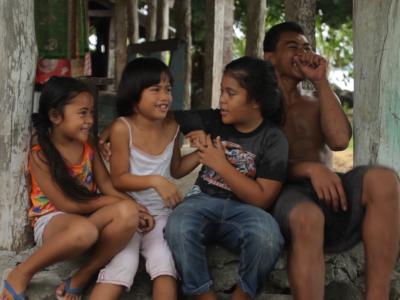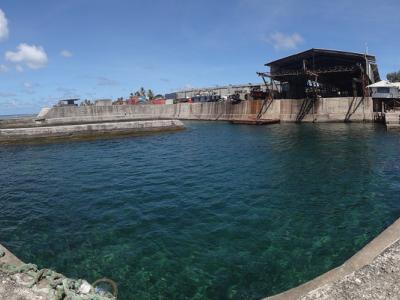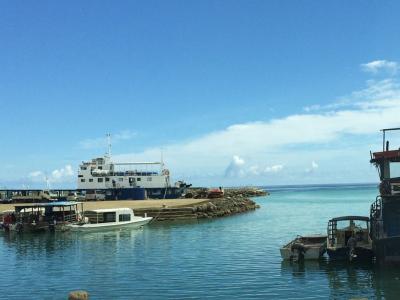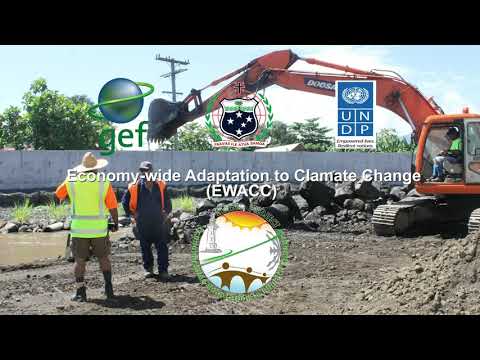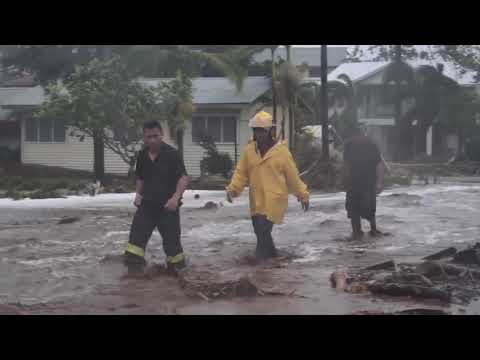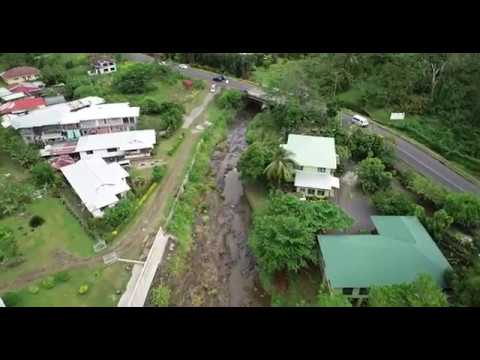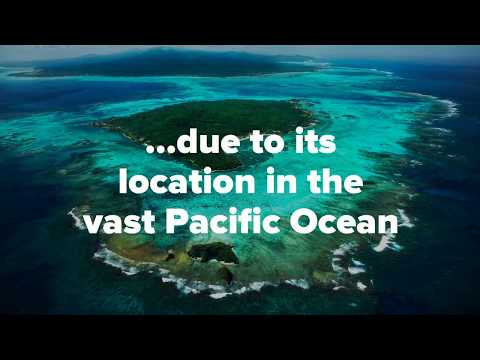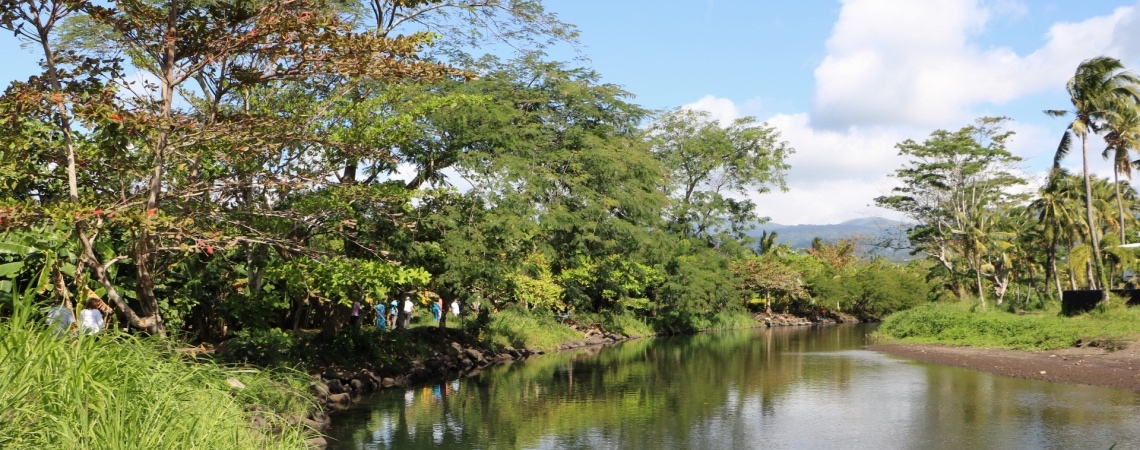
Photo:
- Community
- Municipality
- National
- Country Office
- National Governments
- United Nations Development Programme (UNDP)
26,528 people living in the Vaisigano River Catchment in Samoa
- Ministry of Natural Resources and Environment (MNRE), Government of Samoa
- Green Climate Fund
- United Nations Development Programme (UNDP)
Expected outcomes
Output 1. Strengthening capacities and mechanisms for integrated approach to reduce flood-related risks in place.
Output 2. Key infrastructure in the Vaisigano River Catchment are flood-proofed to increase resilience to negative effects of excessive water.
Output 3. Drainage in downstream areas upgraded for increased regulation of water flows.
- Image
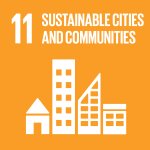
- Image

GCF resources will be used to implement a combination of integrated watershed and flood management works including both hard and soft measures. This includes upgrading river works to cater to increased water flows during flood events (taking into account the likelihood of the increased frequency of extreme events), ensuring that infrastructure works, and home dwellings, government and private-sector buildings are made more secure and provide adequate shelter in case of floods and their aftermaths. Additionally, the project will ensure that when floodwaters occur, the excess waters are channeled away through an effective, efficient, and fit-for-purpose drainage system. The project will consequently play a critical role in assisting the urban population and economy to effectively manage the inevitable increased intensity and frequency of flooding.
Direct benefits from these interventions include reduced risk of damage to public and private infrastructure/assets; reduced possibility of loss of life; and enhanced land value in flood-prone areas. Indirect benefits include reduced losses in income/sales; reduced costs of clean-ups, maintenance and repairs; reduced costs of relief and response efforts; and reduced possibility of health hazards. In addition to these 26,000 direct beneficiaries, the general population of Samoa will benefit from the safeguarding of critical economic assets and learning that will be generated.
In addition, mid and upstream ecosystem and community-based adaptation measures will enhance capture, infiltration, storage and delayed release of rainwater in soils and biomass, and water retention ponds will serve both climate-smart agribusiness development and combat degradation of vulnerable ecosystems through appropriate agro-forestry land-use practices.
Addressing Climate Change in Samoa
Recent extreme events have resulted in approximately US$200 million worth of damages during each event. Climate projections for Samoa suggest that the risk of climate induced events will increase, potentially undermining development progress in urban Apia where the majority of the population and economic activity is located.
Given the topography of the country, extreme events result in significant river discharge that results in flooding of lowland areas. Recent tropical events such as Cyclone Evan have caused significant damage to both public and private assets as a result of flooding, resulting in serious health impacts. Urban infrastructure has suffered considerably from the recurrence of flooding and is unable to cope as climate change-related events are expected to become more frequent and intense.
Projected climate change scenarios cited by the Australian Commonwealth Scientific and Industrial Research Organization (CSIRO) suggest that Samoa is expected to have more frequent and extreme rainfall events; more frequent and longer drought events; increased air and water temperatures; sea level rise; and more frequent extreme wind events.
Launching of the Flood Alert Sirens (a first of its kind in Samoa) within the vicinity of the Vaisigano River Catchment Area, Government of Samoa, November 29 2022
'CSSP Market Day for Beneficiaries of the Green Climate Fund-Vaisigano Catchment Project (GCF-VCP) Ecosystem based Enterprise Development Programme (EbAEDP)', Government of Samoa, September 8 2022
'Celebrating the women at the helm of Samoa’s biggest ever climate change and disaster resilient project on International Women’s Day', March 8, 2019.
Monthly Project Newsletter, Issue 1, July 2019.
'Rebuilding the Lelata Bridge to be tougher and higher', Samoa Observer, January 23, 2019.
'GCF Vaisigano River Catchment Site Visit with Assistant Secretary General of the United Nations and Director of UNDP's Regional Bureau for Asia and Pacific, Haoliang Xu', UNDP Samoa Facebook, June 2018.
'Samoa kicks off climate adaptation project to benefit 1 in 3 citizens facing flood risk' UNDP, October 25, 2017. In the lead up to COP climate talks in Bonn, the launch of a Green Climate Fund-financed US$65 million project signals strong global support for climate-resilient development in Small Island Developing States.
'Every dollar counts in fight against climate change - New GCF Funding for Samoa' - Samoa Observer, December 16, 2016. Op-ed celebrating Somoa's recently approved US$58 million Green Climate Fund project.
YouTube
Learn more about the climate challenges facing Samoa, and how UNDP is working to address those challenges and reduce risks.
Samoa GCF-funded project to help address #climate-induced flooding
The project represents the Government of Samoa’s initial steps in operationalizing a comprehensive flood management solution for the likely consequences of extreme events in Apia, the capital with about 80,000 people. In this project, three interlinked project outputs will be pursued:
- Capacities and information base strengthened for the Government of Samoa to pursue an integrated approach to reduce vulnerability towards flood-related risks;
- Key infrastructure in the Vaisigano River Catchment are flood-proofed to increase resilience to negative effects of excessive water; and
- Upgraded drainage in downstream areas to increase capacity and allow for more rapid outflow of flood waters.
- UNDPAishath AzzaRegional Technical Advisor - Climate Change Adaptation

